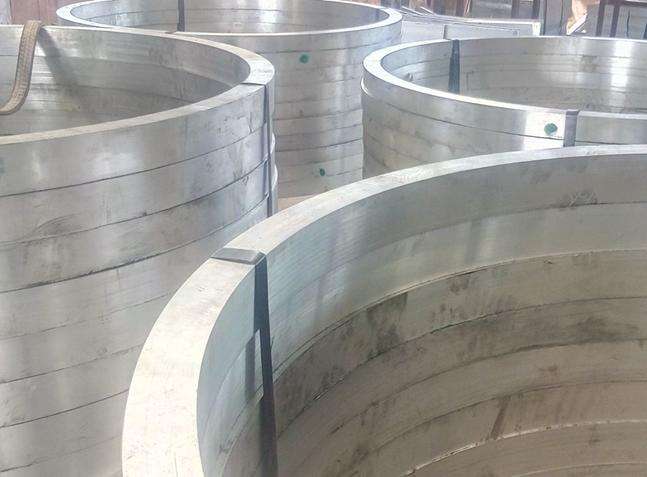Forged aluminum and die-casting aluminum alloys are not the same thing, they have different process characteristics.
Introduction of Forged aluminum
Forged aluminum is an aluminum alloy mainly used for forging. Die-cast aluminum alloy is a cast aluminum alloy, but it is mainly a die-cast aluminum alloy.
Forged aluminum include A1--Si--Mg--Cu alloy and A1-Cu-Ni-Fe alloy,
Commonly used Forged aluminum are LD2, LD5, LD10 and so on. They contain many types of alloying elements, but their content is small. Their excellent thermoplasticity results in very good forging properties and good mechanical properties. This type of alloy is mainly used for die forgings under load and some forgings with complex shapes.

There are four types of cast aluminum alloys: A1-Si series, A1-Cu series, Al-Mg series and Al-Zn series. For cast aluminum alloys, in addition to the necessary mechanical properties and corrosion resistance, they should also have good casting performance. Among cast aluminum alloys, the best combination of casting properties and mechanical properties is A1-Si alloy, also known as silicon aluminum. The casting aluminum alloy has good casting performance, low density, and excellent corrosion resistance, heat resistance and weldability; it is used to produce castings with complex shapes but low strength requirements, such as aircraft and instrument housings; low and medium manufacturing Strong and complex-shaped castings, such as motor housings, cylinder blocks, fan blades, engine pistons, etc.
The characteristics of Forged aluminum
Process properties of Forged aluminum include mobility, tightness, air tightness, gettering, and hot cracking
Introduction of Forged aluminum
Forged aluminum is an aluminum alloy mainly used for forging. Die-cast aluminum alloy is a cast aluminum alloy, but it is mainly a die-cast aluminum alloy.
Forged aluminum include A1--Si--Mg--Cu alloy and A1-Cu-Ni-Fe alloy,
Commonly used Forged aluminum are LD2, LD5, LD10 and so on. They contain many types of alloying elements, but their content is small. Their excellent thermoplasticity results in very good forging properties and good mechanical properties. This type of alloy is mainly used for die forgings under load and some forgings with complex shapes.

There are four types of cast aluminum alloys: A1-Si series, A1-Cu series, Al-Mg series and Al-Zn series. For cast aluminum alloys, in addition to the necessary mechanical properties and corrosion resistance, they should also have good casting performance. Among cast aluminum alloys, the best combination of casting properties and mechanical properties is A1-Si alloy, also known as silicon aluminum. The casting aluminum alloy has good casting performance, low density, and excellent corrosion resistance, heat resistance and weldability; it is used to produce castings with complex shapes but low strength requirements, such as aircraft and instrument housings; low and medium manufacturing Strong and complex-shaped castings, such as motor housings, cylinder blocks, fan blades, engine pistons, etc.
The characteristics of Forged aluminum
Process properties of Forged aluminum include mobility, tightness, air tightness, gettering, and hot cracking








